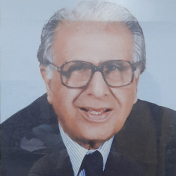
Founder President - NILM
Late Shri. Naval H. Tata
The National Institute of Personnel of Personnel Management (NIPM) came into existence in March 1980, as a result of merger of two professional Institutes, viz. the National Institute of LabourManagement and the Indian Institute of Personnel Management. The NIPM is now the only all India body of professional managers dealing with Personnel Management, Industrial Relations, Human Resource Development and Labour Welfare in the Country. The total membership of NIPM is about 10,000 spread over 56+ Chapters all over the Country. These Chapters are under the territorial jurisdiction of Five Regiond, viz. western, Eastern, Southern, Northern and Central.
NIPM is a non-profit making body and its main objectives are to encourage and assist the development of Professional Management to achieve high standards of knowledge and performance. NIPM is continously engaged in spreading knowledge and informaion about its practices by promotion research, training and extending other services in the field of Personnel Management. With a view to fulfilling these objectives, NIPM arranges conferences, Seminars, Training Programmes, Study Courses and Meetings. It also awards Post Graduate Dipoma in Personnel Management. Constant interaction with Government Departments, employers and tade union organizations helps the NIPM to obtain and disseminate information on Personnel Management, Industrial Relations and allied functions.
NIPM is recognized as the leading Human Resource Management Institute in India supporting standards of excellence in every phase of the profession and represents practitioners in business, government and academic community. It is the premier forum in the Country devoted to furthering the cause of professionalism in the Personnel and Industrial Relations field through an exchange of knowledge and experience of experts from all parts of the world.